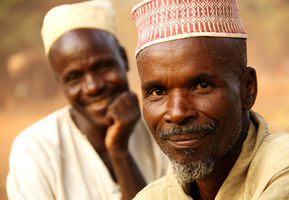
Population
13,000
The community
Community is an important part of Weh life and many people enjoy living in large families. Most Weh people are subsistence farmers. They grow crops such as plantains, yams and avocados. These are used to feed the family and any surplus is sold in the market to gain money for hospital bills, children’s school fees and other basic necessities. Palm wine tapping is also common and some people weave cloth.
However, for a number of years their way of life has been jeopardised due to widespread political insecurity and violence in the Weh area, which has forced thousands of families to flee to nearby cities such as Bamenda.
The need
The Weh people follow a mixture of Christianity, Islam and traditional religions. About 5% of the population practise Islam and 15% are exclusively involved in traditional religion. However, a large number of those who call themselves Christians still practise traditional religions alongside their Christian faith.
Due to ongoing unrest, many Weh people have been displaced and have experienced a great deal of trauma. An estimated 30% of the Weh people have also left the area in order to find work or better opportunities. Of those who do still live in the area, it is thought that only about 10–12% are literate.
The project
Inspired by Bible translation going on in the neighbouring area of Aghem, the Weh people were enthusiastic about having the word of God in their language too. To deliver on this vision, a local translation team has been trained and is now making progress on the Weh New Testament, over two-thirds of which is now drafted. Alongside this, an inter-church committee has been formed, literacy classes have been established and churches have been encouraged to use translated Scriptures to help them grow in their faith.
In response to unrest in the country, the team has moved many of their activities to the major towns and begun trauma healing sessions in Weh to reach out to those who have been displaced.
Discover all our projects across the globe


